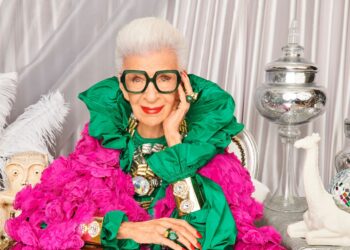Six years after her death, we finally learn what had been haunting Whitney Houston throughout her life. If you followed her interviews, she and family members always hinted that “something happened to her” as a child.
In a recent Vanity Fair article, we learned that “that something” was first disclosed to Oscar-winning filmmaker Kevin Macdonald. Kevin had produced a touching documentary highlighting her as a sweet girl from Newark who happened to be one of the greatest vocal talents of the 20th century. Once he received consent to film the revelation, he took the documentary in another direction.
The secret was first disclosed to him off-camera by Mary Jones, Whitney’s longtime assistant. Whitney had confided in Mary during a conversation where Mary had disclosed her sister was molested as a child. Mary stated, “[Houston] looked at me and said, ‘Mary, I was molested at a young age too. But it wasn’t by a man—it was a woman.’” She just had tears rolling down her face, and I just hugged her. [Then] I said, “One day when you get the nerve, you need to tell your mother. It will lift the burden off you.’”
After speaking about it on camera, one of Whitney’s brothers, Gary, gave a startling confession. He’s quoted as saying, “…being a child—being seven, eight, nine years old—[I was also] being molested by a female family member of mine…”
Allegedly, Whitney and Greg were both sexually abused by their late cousin Dee Dee Warwick, the sister of Dionne Warwick.
‘I wonder if I did something to make [Dee Dee] think I wanted her.’
In March of this year, Oprah Winfrey hosted a special 60 Minutes episode highlighting trauma-informed care. It’s a new form of therapy for victims of childhood trauma. Experts discovered that the number one indicator for surviving and thriving after trauma is a relationship. Therapists now ask children “what happened to you” instead of “what’s wrong with you” and they’re seeing breakthroughs. Having someone, whether a family member, teacher, counselor, etc. inquire and work to solve the issue behind their behavior is paramount to healing.
But Whitney and Greg never trusted anyone with their secret. Because they remained silent, the abuse became one of the reasons why they both turned to drugs.
The reason for their silence is understandable-and common. Sexual abuse is the most underreported crime, with more than 90 percent of people never disclosing it. Still, experts estimate that one out of six boys and one out of four girls are sexually abused before the age of 16. And that rate is drastically higher for African-Americans. The reason for this is primarily due to near and present danger: family members and acquaintances. In nearly 95 percent of child sexual abuse cases, offenders are relatives and close friends. Also, in low-income households or homes with two working parents, children are often left in the care of family and friends. In the film, Greg explained, “My mother and father were gone a lot, so we stayed with a lot of different people . . . four, five different families who took care of us.”
Dee Dee was 12 and 18 years older than Gary and Whitney, respectively, so it’s logical that they would have been trusted in her care. And it also explains why Bobbi Kristina accompanied her mom on all of her international tours. Whitney also encouraged Mary to let her daughter travel with them as well. She did not trust family members to care for the girls.
But could Whitney’s statement, I wonder if I did something to make [Dee Dee] think I wanted her, have been a double entendre? Could Whitney’s guilt have been surmounted because she was sexually attracted to girls? That’s an argument not only for added self-blame but religious punishment as well. Mary had assured Whitney that it wasn’t her fault; a predator is a predator. Yet Mary feels that Whitney was unable to come to terms with her sexuality because she was sexually abused by a female.
”My mother would hurt somebody if I told her who it was.”
In the documentary, Mary described Whitney’s fear to disclose the truth to her mother. The tendency to protect the abuser is a common one, with African-American women being less likely to involve police in cases of child sexual abuse. Research sites such reasons as the fear of betraying the family and turning abusers into authorities and a legal system that’s never been deserving of their trust.
Family loyalty and fear of “the system” can be extremely powerful silencers. Yet, the fear of not being believed can silence victims for a lifetime. However, by Mary’s recount, Whitney appeared confident that her mother would have believed her. She and her mother, despite their differences of opinion, had always maintained a close relationship. If Whitney had mustered the courage, she most likely would have had that singular relationship needed to put her on the path to healing.
Even though Whitney never spoke publicly about the alleged abuse, she hinted about it throughout her career. During one particular press interview, someone asked what makes her angry, and she responded with sudden, palpable rage: “Child abuse makes me angry . . . I hate to see kids . . . it bothers me that children, who are helpless, who depend on adults for security and love, it just bothers me. It makes me angry.”
“Child abuse makes me angry. . . ”
Black women survivors of sexual abuse report being more upset, having greater long-term effects and more negative life experiences. Such effects include post-traumatic stress disorder (PTSD), depression, anxiety, eating disorders, substance abuse (drug abuse), self-mutilation and more. Living with these effects in addition to the shame effects self-confidence, the ability to foster healthy relationships and have a thriving career.
Whitney probably suffered from more than drug abuse, but despite her broken spirit, she managed to not only achieve international acclaim, she used her platform to give that for which she probably longed – justice and healing.
According to Black Celebrity Giving, here are a few examples of her charity work:
Her first credit to social justice came when she worked as a model and before her singing career began. Whitney refused to participate with modeling agencies that worked in South Africa because she was opposed to the apartheid. When she was recognized as a world-renowned singer, she used her platform to further her anti-apartheid agenda and performed at Nelson Mandela’s 70th Birthday Concert in London. It was the event that eventually led to his release, and consequently, the end of South Africa’s segregation.
She donated her royalties of the 1991 “Star-Spangled Banner” to the Red Cross.
The HBO Concert ‘Classic Whitney live from Washington DC’ raised over $300,000 for the Children’s Defense Fund.”
Because she gave so much, Whitney Houston she was honored by St. Jude’s Children’s Research Hospital in 1994.
The National Birth Defects Center of Boston named its Hearing & Language Disorder Clinic after Whitney due to her giving.
Whitney Houston donated so generously to the Hale House, a Harlem-based charity, that they were able to build a Learning & Recreation Center.
She provided financial assistance to the Rainbow House, a shelter for adolescent mothers and for children with HIV and AIDS.
In February 2004, Whitney donated 1 million rubles to the Russian Aid Fund for victims of a bomb attack in the Moscow subway.
Whitney supported a cyber petition by international debt relief campaign Jubilee 2000 to persuade world leaders to erase debt owed by 40 of the world’s poorest nations.
For the 1992 movie premiere of “The Bodyguard,” proceeds went to The Whitney Houston Foundation For Children and to the Magic Johnson Foundation for pediatric AIDS research.
For the 1996 movie premiere of “The Preacher’s Wife,” proceeds went to The Whitney Houston Foundation For Children, the Boys & Girls Clubs of America (Denzel Washington’s choice) and a third charity chosen by director Penny Marshall.
One of Whitney Houston’s favorite causes, Whitney performed at a Cancer Research Benefit at Howard University in Washington, D.C.
For her 1992 wedding to New Edition Star Bobby Brown, Whitney asked attendees and fans to contribute to the Whitney Houston Foundation For Children in lieu of gifts.
The Newark, N.J., hometown-based Whitney Houston Intensive Care Unit is a thirteen-bed multidisciplinary unit which provides high technology intervention for children who have experienced trauma or other life-threatening illnesses. The hospital named its Pediatric Special Care Unit after Whitney Houston due to her giving.
Despite living as a victim, Whitney was an anomaly; she achieved insurmountable success and gave back despite her brokenness. If Whitney had been alive to witness the #metoo movement, I imagine her and Gary summoning the courage to tell their mother about the abuse then actively joining the movement. Sexual abuse is a cancer, especially in the black community, and I’m confident she would have worked tirelessly to eradicate its effects so victims could reach their full potential. Can you imagine the additional impact she could have had on her family and the world if she had been healed?












